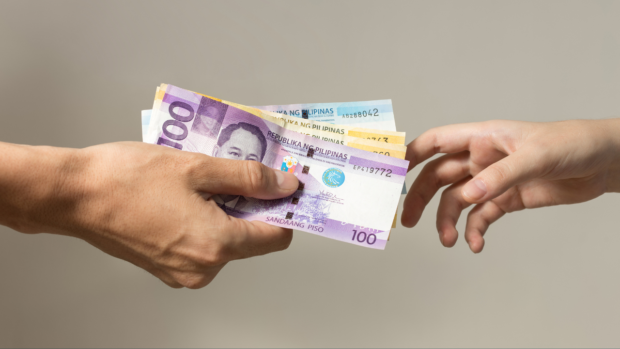The Department of Budget and Management (DBM) has released P6.2 billion in cash subsidies for households badly hit by expensive oil.
In a statement on Friday, the DBM said the total amount released to the Department of Social Welfare and Development (DSWD) so far will cover the first tranche of targeted cash transfers to the poorest half of the population.
The DSWD will distribute cash to 6 million households, of which 4 million are beneficiaries of the “Pantawid Pamilyang Pilipino” Program. The rest of the 2 million are social pensioners or senior citizens, the DBM said.
“The beneficiaries shall receive P500 monthly cash subsidies for six months to be distributed in three tranches. This implies they are expected to receive P1,000 for the first tranche, which will be distributed through the cash cards issued by the Land Bank of the Philippines or other approved modes of distribution,” the DBM said.
“The DBM will ensure the timely and prudent release of funds and work closely with all implementing agencies to help ease the burden of the vulnerable population most affected by global crises,” it added.
The government set aside a total of P47.5 billion in financial assistance to those worst hit by costly oil: P41.4 billion in unconditional cash transfers to the bottom 50 percent of households worth P500 per month during a six-month period; P5 billion in fuel subsidies to public utility vehicle (PUV) drivers; and P1.1 billion in fuel discounts to agricultural producers.
The first tranche of fuel subsidies and discounts amounting to P3 billion were released on March as they came from implementing agencies’ respective 2022 budgets.
“As of June 1, over 180,000 PUV drivers and operators have received the P6,500 subsidy to mitigate the impact of the spike in energy-related prices. The Land Transportation and Franchising Regulatory Board targets to immediately finish the distribution of the first tranche,” the state planning agency National Economic and Development Authority said in a report last month.
The government will source funds for these doles from excess collection of 12-percent value-added tax slapped on now expensive fuel, state-run corporations’ dividend advances, plus about P15 billion to P17 billion in excise payments of the two leading domestic cigarette manufacturers that bought tax stamps in advance.
In April, World Bank country director for the Philippines Ndiamé Diop said in a webinar that rising inflation could be best addressed by well-targeted cash transfers to vulnerable households and groups.
RELATED STORY:
DBM releases P6.2-B cash subsidy for 6 million poor Filipinos
